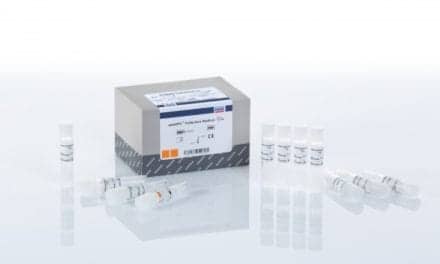A potential breakthrough in the early detection of the neck, head, and anal cancers linked to human papilloma viruses (HPV) has emerged. It is based on a highly specific diagnostic test that appears to indicate cancer, and predict its course, from just a pinprick of blood.
There are more than 200 types of HPV viruses with the most aggressive one, HPV16, responsible for over 90% of all HPV-related head and neck tumors, and for over 70% of all cases of cervical cancer. The new point-of-care biomarker test detects levels of a specific antibody (DRH1) to HPV16.
Findings from a multicenter European clinical study evaluating the new marker test have been published in Ebiomedicine, one of the Lancet’s stable of medical journals. The study scientists have been able to demonstrate a link between rising levels of these HPV antibodies and cancer.1
The study was led by Thomas Weiland from Austria’s Medical University of Graz. “This is the first time that we have been able to show a link between raised levels of this specific antibody and HPV cancers, indicating the course of disease,” Weiland explains. “This might raise the potential of being able to detect disease recurrence much earlier than current clinical practice.”
The presence of HPV infection does not mean the patient has cancer, and in most cases the body clears the infection. The new test detects an antibody which is only produced when an infection had led to increased cell growth*. Previously, no test had been able to discriminate an HPV-infection from actual HPV-induced malignancy.
The study demonstrated a sensitivity of 90% to 95% for anal and oropharyngeal cancers and a specificity of 99.3%—performance characteristics that are diagnostically significant compared to existing methods for the early detection of HPV-induced cancers.
Scientists see this as a promising biomarker test, not only for the early diagnosis of HPV-related cancers but for monitoring a patient’s response to therapy and as an early warning that the disease has returned. “While HPV infection does not indicate cancer, scientists have suspected for some time that if antibodies were to develop, there may be a link to cancer,” says HPV expert Ralf Hilfrich, PhD, founder of Abviris and the creator of the DRH1, blood-based HPV tumor marker. “Being able to detect that early enough could have a major impact on patient outcomes. The test’s specificity has enabled scientists to show that rising levels of HPV antibodies in blood do reflect malignancy. The study also indicates that it may prove diagnostically significant, compared to current detection methods, when a biopsy is hard to access, or where the site of the primary cancer is unknown or unidentifiable, such as very early metastasis.”
The pan-European study was conducted across six clinical centers. “We compared 1,500 patient samples—including carcinomas of the head and neck, oral cavity carcinomas, anal carcinomas—with those of the healthy control group,” adds Weiland. The overall study was divided into two parts. The retrospective study of patients with anal cancer was able to show that high antibody levels indicating anal cancer would have been detected more than six months (293 days) before the tumor had actually been picked up. The second part, a prospective study of neck and head cancer patients, monitored patients for two years after treatment, confirming the test’s ability to predict cancer.
Even with the success of the Pap smear and the vaccine against cervical cancer, HPV-induced cancers remain a global health burden, with an estimated seven billion unprotected people at risk and about 400,000 deaths annually.
*The new test is built around the Abviris proprietary antibody clone Anti-AHPV16-L1-DRH1
Featured image: Annual incidences in men and women of cancer types induced by HPV 16, showing both Europe and USA. Source: Globocan 2018 data.
Reference
- Weiland T, Eckert A, Tomazic PV, et al. DRH1 – a novel blood-based HPV tumour marker. EBioMedicine. 2020;56:102804. doi:10.1016/j.ebiom.2020.102804





